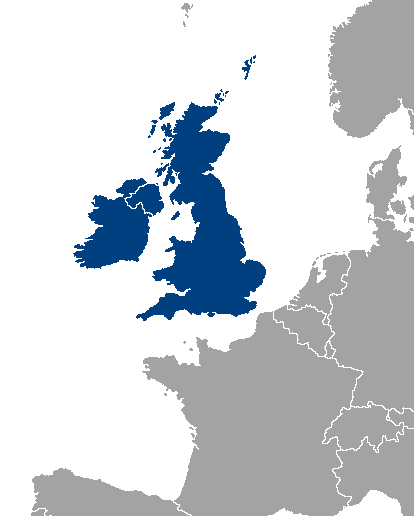Irish identity grounded firmly in the UK
The Irish Times published a series of articles examining relationships between “Ireland and Britain”. In a typically forthright piece, the paper’s columnist, Newton Emerson, writes that he does “not feel Irish in the slightest”. He grew up in Northern Ireland at a time when direct rule made it “as British as Finchley”.
I’m a little younger than Newton and my attitudes are slightly different. I do consider myself Irish, but the Irishness I feel has little to do with the Republic of Ireland and it sits happily alongside my sense of Britishness. For me, Northern Ireland is “as British as Finchley”, or Stirling, or Caerphilly, it just isn’t the same as Finchley.
I grew up in Ballymena, Ian Paisley’s heartland, where hostility to Irish identity was not uncommon. After winning his first international cap, one of the town’s rugby stars, Davy Tweed, was reputed to say, “I’ve played thirty times for my country (Ulster) and once for Ireland”.
Like Newton, many of my cultural references came from British TV, sport and popular music, but I was also highly aware of Irish literature and music. As a teenager, in the early nineties, my favourite group was U2, and I studied the full range of Bono’s musings, as well as the contents of the band’s lyrics.
As I got older, I still enjoyed the music, but I found his political pronouncements embarrassing. That was a journey I suspect I shared with young people from all over the island.
At school, the fashion at the time was to teach chunks of history, rather than its broad sweep. Some of the topics were specifically Irish and some British, but, because our pasts are so closely entwined, mostly they were relevant to both identities. Ireland was a prominent issue for Elizabeth I and the Stuarts, while a connection with Britain dominated Irish affairs in the late 19th and early 20th century.
Where politics were concerned, like many Northern Irish youngsters who were interested in current affairs, I knew embarrassingly little about our neighbouring state. Proper political debates were conducted at Westminster, and local government in Northern Ireland offered a grim parody, embarrassing and futile in equal measure. I read British papers, watched the BBC news and British political programmes on TV.
I was most aware of being Irish on holiday, where i spent summers on campsites in France, mixing mainly with children from the rest of the UK. For English, Scottish and Welsh kids, my accent meant I was Irish, and I accepted that verdict cheerfully enough. It didn’t seem to mean my Britishness was questioned, and I remember taking part in UK vs. the rest of Europe football matches, against players from the Republic.
This upbringing shaped my political beliefs, that Northern Ireland should remain part of the UK and that Britishness accommodates Irishness, Welshness and Scottishness comfortably, as well as other identities from newer arrivals to our islands.
The Republic of Ireland purports to represent the Irish nation in its entirety, but that is not a claim that I recognise. I’m from the part of Ireland that did not secede from the UK, and while I have certain aspects of Irishness in common with those who are not British, my Irish identity is grounded firmly in a multicultural, multinational United Kingdom.

Comments